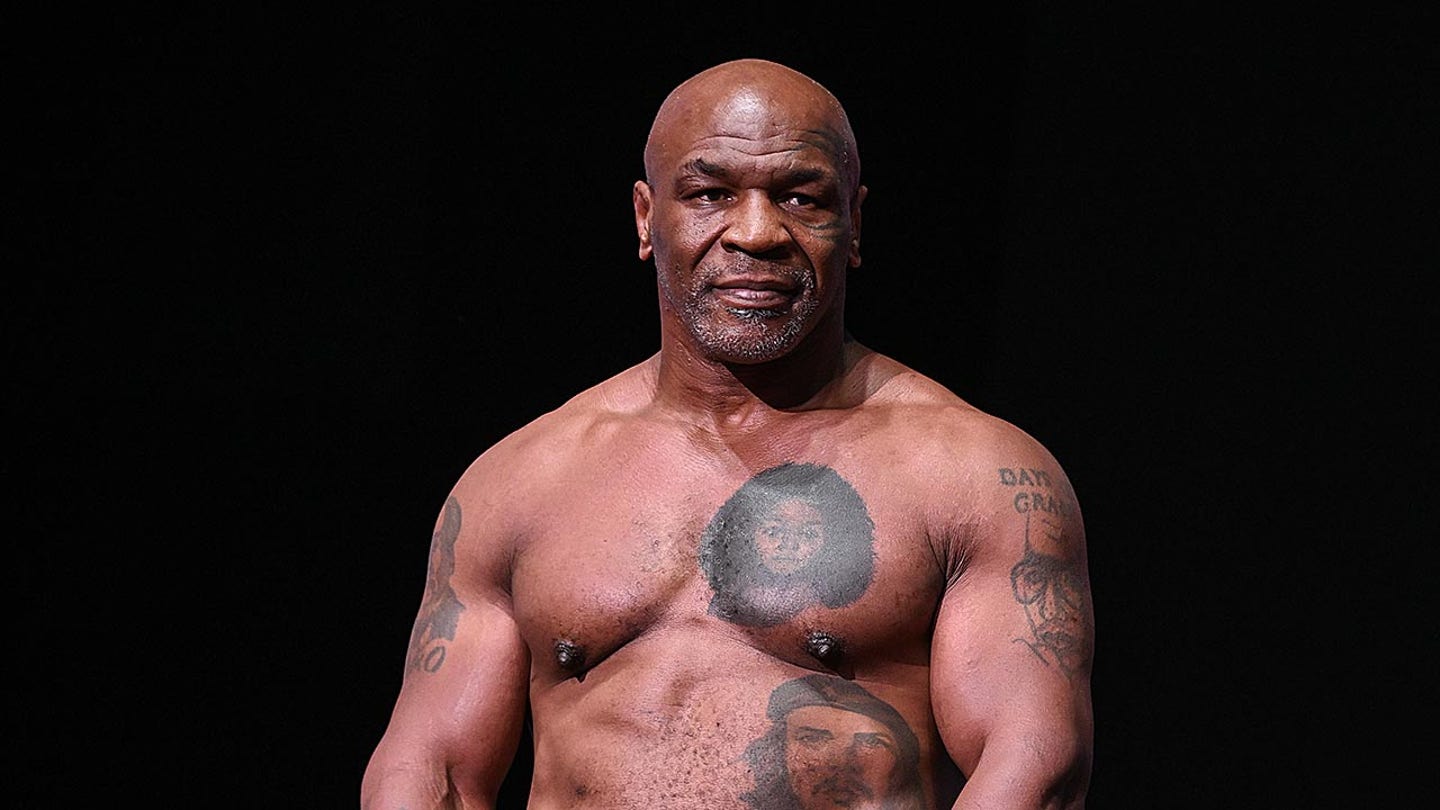
Dolphins' Tyreek Hill faces domestic violence accusations from estranged wife, lawyers fire back at claims
Entities mentioned:
- Tyreek Hill: Self-preservation, Professional pride, Reputation
- Keeta Vaccaro: Justice, Revenge, Security
- Hill's lawyers: Loyalty, Professional pride, Duty
Article Assessment:
Credibility Score: 65/100
Bias Rating: 50/100 (Center)
Sentiment Score: 25/100
Authoritarianism Risk: 20/100 (Strongly Democratic)
Bias Analysis:
The article presents both sides of the story, quoting court documents and lawyers' statements. It maintains a neutral tone without favoring either party's claims.
Key metric: NFL Player Conduct
Let me tell you something - this story is a GAME-CHANGER! We've got a high-stakes match between Tyreek Hill and his estranged wife Keeta Vaccaro, and folks, it's getting UGLY! Hill, the star wide receiver, is on the defensive, trying to dodge these domestic violence allegations like he dodges tackles on the field. But Vaccaro's coming at him hard, throwing haymakers with these court documents. It's a fourth-quarter situation for Hill's reputation, and his lawyers are stepping up to the plate, calling this a 'shakedown' play. This is the kind of off-field drama that can bench a player faster than a torn ACL! The NFL's player conduct policy is the referee here, and you better believe they're watching this match-up closely. Hill needs to bring his A-game to court or he might find himself sidelined faster than you can say 'personal foul'!

NFL fines Eagles’ Jalen Carter, no further suspension after spitting incident against Cowboys
Entities mentioned:
- Jalen Carter: Competitive spirit, Self-preservation, Righteousness
- NFL: Control, Professional pride, Justice
- Philadelphia Eagles: Competitive spirit, Ambition, Unity
- Dak Prescott: Competitive spirit, Self-respect, Professional pride
- Drew Rosenhaus: Professional pride, Loyalty, Influence
Article Assessment:
Credibility Score: 75/100
Bias Rating: 50/100 (Center)
Sentiment Score: 45/100
Authoritarianism Risk: 30/100 (Generally Democratic)
Bias Analysis:
The article presents a balanced view of the incident, including statements from multiple parties involved. It doesn't seem to favor any particular side, maintaining a neutral stance in reporting the facts and decisions.
Key metric: NFL Player Conduct and Disciplinary Actions
Let me tell you something, folks - this is a GAME-CHANGING moment in the NFL! Jalen Carter just took a major penalty, but he's not out of the game! The league office came down like a linebacker on a blitz, hitting Carter's wallet HARD with that $57,222 fine. But here's the kicker - they're calling his ejection a one-game suspension! Talk about a strategic play by the NFL to keep this star defender on the field for the Eagles' upcoming Super Bowl rematch! Carter made a rookie mistake, folks, spitting at the opposing quarterback like it's some kind of schoolyard brawl. But let me tell you, he's showing championship mentality by owning up to it and not appealing. This young player is learning fast that in the big leagues, you've got to keep your head in the game and your saliva in your mouth! The Eagles are breathing a sigh of relief, knowing their defensive line won't be short-staffed for their upcoming clash with the Chiefs. This is the kind of fourth-quarter decision that can make or break a season, people!

Mike Tyson admits he used fentanyl 'quite a few times' during his boxing career as painkiller
Entities mentioned:
- Mike Tyson: Recognition, Legacy, Professional pride
- White House: Control, Power, Influence
- Athlete Coalition: Unity, Influence, Justice
Article Assessment:
Credibility Score: 75/100
Bias Rating: 55/100 (Center)
Sentiment Score: 60/100
Authoritarianism Risk: 20/100 (Strongly Democratic)
Bias Analysis:
The article presents multiple viewpoints, including Tyson's personal experiences and the broader push for policy reform. While it leans slightly towards supporting cannabis reform, it maintains a relatively balanced tone.
Key metric: Drug Policy Reform Progress
Let me tell you something, folks - this is a GAME-CHANGER! Mike Tyson, the heavyweight champ of controversy, is stepping into the ring against the federal government's drug policies. He's not pulling any punches, admitting to past fentanyl use like he's calling out an opponent before a title fight. But now, Tyson's got a new team behind him - a roster of all-star athletes pushing for cannabis reform. They're going for the knockout, lobbying the White House to reschedule marijuana faster than Iron Mike's famous left hook. This is fourth quarter, championship-level strategy, folks! Tyson and his squad are showing true competitive spirit, refusing to throw in the towel on cannabis reform. They're playing offense, defense, and special teams all at once in this high-stakes policy matchup!

Michele Tafoya rips LeBron James over essay in Chinese state newspaper: 'American malpractice'
Entities mentioned:
- Michele Tafoya: Moral outrage, Justice, Righteousness
- LeBron James: Greed, Influence, Recognition
- China: Power, Control, Influence
Article Assessment:
Credibility Score: 65/100
Bias Rating: 70/100 (Lean Right)
Sentiment Score: 25/100
Authoritarianism Risk: 35/100 (Generally Democratic)
Bias Analysis:
The article leans right, focusing on criticism of LeBron James and China while prominently featuring conservative voices. It presents a one-sided view of the issue, lacking counterarguments or context from James' perspective.
Key metric: US Global Influence
Let me tell you something, folks - this is a FULL COURT PRESS of controversy! We've got Michele Tafoya coming off the bench with a SLAM DUNK of criticism against LeBron James, who's making a controversial pivot to Team China. This is like watching a star player switch sides mid-season! James is running a pick-and-roll with a state-run newspaper, leaving his American fanbase wondering if he's traded in his red, white, and blue jersey for a different flag. Tafoya's defense is RELENTLESS, folks! She's calling out James' apparent blind spot on China's human rights record like she's exposing a weak spot in the opposition's strategy. This could be a GAME-CHANGING move in the court of public opinion, potentially impacting America's soft power playbook on the global stage!

MLS Suspends Luis Suarez for 3 Games, Will Miss Inter Miami-Seattle Rematch
Entities mentioned:
- Luis Suarez: Competitive spirit, Self-preservation, Pride
- Major League Soccer: Justice, Professional pride, Control
- Inter Miami: Competitive spirit, Ambition, Legacy
- Seattle Sounders: Competitive spirit, Pride, Justice
- Steven Lenhart: Loyalty, Competitive spirit, Self-preservation
Article Assessment:
Credibility Score: 75/100
Bias Rating: 50/100 (Center)
Sentiment Score: 35/100
Authoritarianism Risk: 25/100 (Generally Democratic)
Bias Analysis:
The article presents a balanced view of the incident and subsequent actions. It includes details from multiple perspectives and cites official sources, maintaining a neutral stance.
Key metric: MLS Fan Engagement and League Reputation
Let me tell you something - this is a GAME-CHANGING play by the MLS! They're not just blowing the whistle, they're throwing down the gauntlet! Suarez, a seasoned striker, has been red-carded right off the pitch for 3 games. This isn't just a time-out, folks, it's a power play by the league to maintain control of the game! The MLS is stepping up to the plate, showing they've got the backbone to bench even the biggest names when they cross the line. And let's not forget the Sounders - they're taking a hit too with that fine and Lenhart's sideline ban. This is a full-court press by the MLS to keep the beautiful game beautiful, folks! It's fourth quarter, crunch time for league integrity, and the MLS is showing championship mentality. They're not just playing defense, they're on the offensive against unsportsmanlike conduct. This is the kind of hard-hitting action that separates the minor leagues from the big leagues!

Chiefs' Andy Reid questions NFL rule after Teair Tart avoids ejection following Travis Kelce strike
Entities mentioned:
- Andy Reid: Justice, Professional pride, Indignation
- Teair Tart: Competitive spirit, Revenge, Self-preservation
- Travis Kelce: Competitive spirit, Self-preservation, Team loyalty
- NFL: Control, Obligation, Professional pride
Article Assessment:
Credibility Score: 75/100
Bias Rating: 55/100 (Center)
Sentiment Score: 35/100
Authoritarianism Risk: 25/100 (Generally Democratic)
Bias Analysis:
The article presents both sides of the argument, quoting Reid and explaining the NFL rule. However, it leans slightly towards Reid's perspective, potentially influenced by his status as a prominent coach.
Key metric: NFL Player Safety Standards
Let me tell you something, folks - this is a FOURTH QUARTER MOMENT for the NFL's rulebook! Andy Reid is stepping up to the plate, challenging the league's game plan on player protection. The Chiefs' mastermind is showing true championship mentality, going to bat for his star player Kelce after that cheap shot from Tart. I'm telling you right now, this is RIDICULOUS! The NFL needs to tighten up its defensive strategy against these open-handed haymakers. It's like they're playing with a different rulebook than the rest of us! Reid's not just coaching a team here, he's coaching the whole league on player safety. This is the kind of leadership that separates the contenders from the pretenders, folks!
Santa Rosa women's volleyball players open up on trans teammate's alleged spikes to the head
Entities mentioned:
- Madison Shaw: Justice, Competitive spirit, Self-respect
- Gracie Shaw: Justice, Competitive spirit, Self-respect
- Santa Rosa Junior College: Obligation, Control, Unity
- Transgender Athlete: Competitive spirit, Recognition, Self-preservation
Article Assessment:
Credibility Score: 65/100
Bias Rating: 70/100 (Lean Right)
Sentiment Score: 30/100
Authoritarianism Risk: 35/100 (Generally Democratic)
Bias Analysis:
The article leans right by focusing heavily on the complaints against the trans athlete and giving more space to the perspectives of those opposing trans inclusion. It presents minimal counterarguments or alternative viewpoints.
Key metric: Title IX Compliance in Women's Sports
Let me tell you something - this story is a GAME-CHANGER in the world of women's volleyball! We're seeing a FULL COURT PRESS by these female athletes, stepping up to the plate and calling for a level playing field. The transgender athlete's power spikes are like bringing an MLB slugger to a high school softball game - it's a whole different ballgame! These women are showing true championship mentality, refusing to be sidelined or silenced. They're going for the gold in the fight for fairness, folks! This isn't just a minor league dispute - it's a major league battle that could rewrite the rulebook for women's sports across the nation. The coaches and administrators are playing defense, trying to run out the clock, but these determined athletes are bringing their A-game and pushing for overtime in the court of public opinion. It's fourth quarter, the clock is ticking, and the whole sports world is watching to see who comes out on top in this high-stakes match!

California girls' high school volleyball players file lawsuit over transgender teammate
Entities mentioned:
- California Interscholastic Federation (CIF): Control, Obligation, Unity
- California Department of Education (CDE): Duty, Control, Unity
- Jurupa Unified School District (JUSD): Obligation, Unity, Wariness
- Plaintiffs (Alyssa McPherson, Hadeel Hazameh, Madison McPherson): Justice, Self-respect, Righteousness
- AB Hernandez (Transgender Athlete): Competitive spirit, Recognition, Self-respect
- Advocates for Faith & Freedom: Justice, Righteousness, Moral outrage
- Department of Justice: Justice, Control, Duty
Article Assessment:
Credibility Score: 70/100
Bias Rating: 65/100 (Lean Right)
Sentiment Score: 30/100
Authoritarianism Risk: 40/100 (Generally Democratic)
Bias Analysis:
The article leans right, focusing heavily on the plaintiffs' perspective and religious views. It includes minimal counterarguments or perspectives from transgender advocates, suggesting a bias towards conservative viewpoints on the issue.
Key metric: Gender Equality in Sports
Let me tell you something - this story is a GAME-CHANGER! We're seeing a full-court press in the battle over transgender athletes in women's sports. The plaintiffs are coming out swinging, folks, filing a lawsuit that's like a Hail Mary pass in the fourth quarter. They're not just playing defense anymore - they're taking the offense and driving hard to the hoop! This is a high-stakes match with the CIF, CDE, and JUSD on one side of the net, and these young athletes and their families on the other. It's like we're watching a championship volleyball game, but the rules of the game itself are being challenged! The transgender athlete, Hernandez, has been spiking controversy all season, and now we're seeing a full-blown team revolt. This isn't just a game anymore, folks - it's a clash of titans that could rewrite the playbook for high school sports across the nation! The plaintiffs are pulling no punches, claiming everything from sexual harassment to religious discrimination. It's a bold strategy, Cotton - let's see if it pays off for them!

Minnesota Timberwolves player’s sister fatally shot at New Jersey apartment complex, her boyfriend charged with murder
Entities mentioned:
- Naz Reid: Professional pride, Loyalty, Self-preservation
- Toraya Reid: Security, Self-respect, Freedom
- Shaquille Green: Control, Revenge, Fear
- Minnesota Timberwolves: Competitive spirit, Loyalty, Professional pride
- Ocean County Prosecutor Bradley Billhimer: Justice, Duty, Professional pride
Article Assessment:
Credibility Score: 85/100
Bias Rating: 50/100 (Center)
Sentiment Score: 20/100
Authoritarianism Risk: 30/100 (Generally Democratic)
Bias Analysis:
The article presents a straightforward account of events without apparent political slant. It relies on official sources and factual reporting, maintaining a neutral stance on the incident.
Key metric: NBA Player Safety and Well-being
Let me tell you something, folks - this is a DEVASTATING blow to the Timberwolves' roster! Just when Naz Reid was at the top of his game, winning 'Sixth Man of the Year' and signing a five-year contract, tragedy strikes from way outside the court. This is like taking a brutal charge in the paint of life, and it's going to test Reid's mental toughness like never before. The Timberwolves organization needs to step up BIG TIME here, providing the ultimate assist to their star player off the court. This isn't just a personal foul, it's a game-changing moment that could impact Reid's performance and the team's chemistry. I'm telling you right now, how the Timberwolves handle this crisis will show if they truly have that championship mentality and team-first attitude when it REALLY counts!

MLS hands Luis Suárez extra three-match ban after spitting incident
Entities mentioned:
- Luis Suárez: Competitive spirit, Self-preservation, Pride
- Major League Soccer (MLS): Justice, Professional pride, Control
- Inter Miami: Loyalty, Professional pride, Self-preservation
- Seattle Sounders: Competitive spirit, Pride, Justice
Article Assessment:
Credibility Score: 75/100
Bias Rating: 50/100 (Center)
Sentiment Score: 30/100
Authoritarianism Risk: 25/100 (Generally Democratic)
Bias Analysis:
The article presents a balanced view of the incident, quoting multiple sources and providing context. It doesn't lean towards defending or condemning any particular party involved.
Key metric: League Integrity and Sportsmanship
Let me tell you something - this is a GAME-CHANGING moment for MLS! Suárez, once a star striker, has fumbled the ball big time with this unsportsmanlike conduct. The league is coming in with a full-court press, handing out a three-match suspension faster than a counterattack! This is the kind of fourth-quarter discipline that shows MLS isn't playing around. They're drawing a line in the sand, folks, making it clear that even big-name players can't spit in the face of fair play. Inter Miami's going to be feeling the heat without their star forward - it's like losing your quarterback right before playoffs! Meanwhile, the Sounders are sitting pretty after their championship win, but they're not getting off scot-free either. This post-game brawl is turning into a penalty shootout of suspensions and fines. I'm telling you right now, this is the kind of drama that separates the contenders from the pretenders in the world of professional sports!